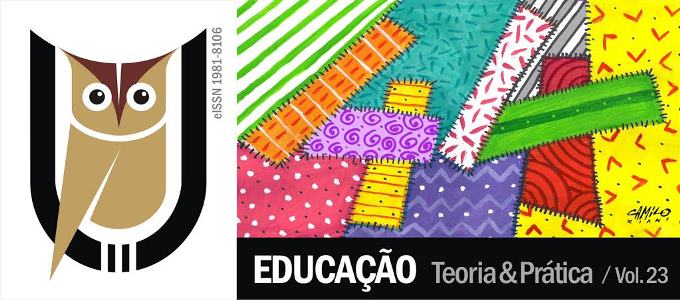“Ah, I think the orality is so important!” The propose of the teachers practice in orality teaching
DOI:
https://doi.org/10.18675/1981-8106.vol23.n44.p63-80Keywords:
Orality, Teacher knowledge, Teaching.Abstract
This paper is about a research with three teachers of elementary school, from municipal system of Recife’s metropolitan region. We wanted to understand their knowledge about oral as a teaching object. We did a semi-structural interview and an individual one with all the subjects to explore their understanding about the objectives of teaching mother language, as well as rescue their practical elements and others. The data was treated in a qualitative view with content analysis bases in Bardin (1997). The results show us that the teachers understand the orality as one of the objectives of teaching mother language, despite their speech emphasizes reading, writing and language analysis. The results also show that there is a demand to what to teach. In general, it seems that they are not so clear about what is the working with the orality. However, the analyzed data offer methodological-teaching proposes that get fitted to explore the investigated pivot.Downloads
Additional Files
Published
How to Cite
Issue
Section
License
Authors who publish in this journal agree to the following terms:
a) Authors assign copyright to the journal, with the work simultaneously licensed under the Creative Commons Attribution License that allows sharing of the work with acknowledgment of authorship and publication in this journal.
b) The policy adopted by the Editorial Committee is to assign copyright only after a period of 30 months from the date of publication of the article. After this time, authors interested in publishing the same text in another work must send a letter to the Editorial Committee requesting the release of the assignment of copyright and wait for a response.
c) This journal provides public access to all its content, since this allows greater visibility and reach of published articles and reviews. For more information on this approach, visit the Public Knowledge Project, a project that developed this system to improve the academic and public quality of research, by distributing OJS as well as other software to support the public access publication system to academic sources. The names and email addresses on this website will be used exclusively for the purposes of the journal and will not be available for other purposes. This journal provides open any other party  This work is licensed under a Creative Commons License
This work is licensed under a Creative Commons License











